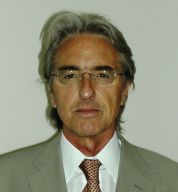 |
||
Accueil > Forum TERATEC > Sessions plénières
Evolution and challenges of engineering simulation Stefano ODORIZZI
Abstract : There is an overwhelming convergence today that engineering simulation could deeply impact on the design process of the industry, as well as on related research. A new paradigm in simulation based engineering is progressively and pervasively taking place, that will be indispensable in meeting the technological challenges of our century. Multi-scale modelling, as well as multi-disciplinary and multy-phisics approaches are key elements of the modeling of complex, inter-related systems, targeted to the acquisition of results that meet specified standards of precision. Design and planning tend to become a multi-partnered collaborative process, focused on reliability and robustness. Moreover, the growing demand for multi-objective optimisation as well as for uncertainty quantification and mitigation both from a forward and a backward design, production and assembly perspective create an explosion of data and hence new requirements in terms of HW and SW performances. On the one side, within the next decade or two we will likely get to a point of science fiction becoming science fact where design engineers will be spending all their time imagining product variants and product innovations whilst computers will be churning away in the background spitting out predictions for the engineers that they can review in real time. On the other side the challenges of making progress are as substantial as the benefits: if we are to reap the benefits, we must first overcome various obstacles, including changing the way we conceive and perform simulation, making significant advances in the supporting technologies, and improving interdisciplinary education in computational science and computing technologies. Biography : Prof. Stefano Odorizzi is an internationally recognized expert in the fields of Computational Mechanics and more generally of Simulation Based Engineering and Sciences. Throughout his career he has successfully pioneered a number of ventures aimed at the transfer of technology from academia to industry. He is a founding partner and current President of Enginsoft Italy, a company accredited by the Italian Ministry of University and Research as a lab for technology transfer from the academic world to industry in the field of virtual prototyping. He is a very active member of the engineering simulation community and currently is chairman of the board of the TCN Consortium, Reactive Search and EnginSoft Germany. He is also a co-founder and current board member of SWS (Soil Water Structures) in Trento, Italy, a charter member and current board member of Technet (Technology Network Alliance) in Switzerland, and board member of EnginSoft UK and EnginSoft France. For the last twenty years Prof. Odorizzi has been a project leader/board member of a number of important EU Research initiatives including NADIA (New Automotive components Designed for and manufactured by Intelligent processing of light Alloys), IDEAL (Integrated Design Automation Laboratory), EUA4X (European Atelier for Engineering and Computational Sciences), MUSIC (MUlti-layers control&cognitive System to drive metal and plastic production line for Injected Components), SOL2HY (Solar To Hydrogen Hybrid Cycles), just to name a few. Prof. Odorizzi is also an adjunct professor in Computational Mechanics at the University of Padova, a post he has held for the last 30 years. He holds a degree in Civil Engineering from the University of Padova, in Italy and has pursued post graduate studies in numerical simulation.
|
